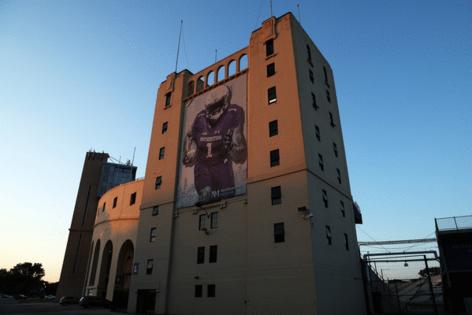Northwestern's anti-hazing policies 'robust' but more is needed, former US Attorney General Loretta Lynch's review finds
Published in News & Features
Northwestern University has “robust” policies and training against hazing and bullying in place but a lack of clear guidance on how to respond to concerns from student-athletes could lead to inconsistent responses and the perception that complaints are not being properly addressed, a team led by former U.S. Attorney General Loretta Lynch concluded in a review that was commissioned last year in the wake of a football hazing scandal that expanded to allegations of abuse on other teams.
“While our recommendations are focused on the areas in which we believe improvement can and should be made, the results of our review have been largely positive,” Lynch and her team wrote in an executive summary of the report, released Thursday. “We have observed a commitment by the university and athletics department to the well-being of their student-athletes.”
Northwestern faces lawsuits from several former football players who accuse the school and ex-head football coach Pat Fitzgerald of allowing a culture in which teammates were forced to perform nude and sexualized hazing rituals. Fitzgerald denied that he knew about alleged hazing and sued the school after being fired in July 2023 amid the brewing controversy.
Last month, a Cook County judge ruled that Fitzgerald’s lawsuit and those filed by the former players would proceed to trial jointly. A separate lawsuit involving former baseball team staffers is also pending in Cook County court.
In a release accompanying the Lynch report, Northwestern President Michael Schill said the university was committed “to fostering a safe and inclusive environment for all members of our community, including student-athletes.”
Lynch’s team said it reviewed university and athletics departments policies, reporting procedures, training materials, surveys and exit interviews of student athletes. It also conducted its own interviews with more than 120 university members, including students, faculty, administrators, coaches, athletics department staff and trustees.
The review did not reexamine past allegations of hazing or other wrongdoing on athletics teams at Northwestern or the university’s staffing decisions following those allegations. It looked at current policies and training, including any enacted subsequent to the hazing scandals.
The review found that the school’s athletics department is largely insular from the broader university community, and that “insularity,” while key to creating close bonds between teammates, coaches and staff, could also make it harder for athletes to report potential misconduct, “particularly if members of their team and its staff are perceived to be participating in or condoning the misconduct.”
Lynch’s team called the university’s policies and training against hazing and bullying “robust,” and said students — regardless of their participation in sports — had multiple ways to express concerns or report possible misconduct, including anonymously through NUHelp’s online reporting forms.
But student-athletes said they would typically bypass those formal systems and instead first report misconduct to coaches, teammates or athletics department staff.
...continued
©2024 Chicago Tribune. Visit chicagotribune.com. Distributed by Tribune Content Agency, LLC.







Comments